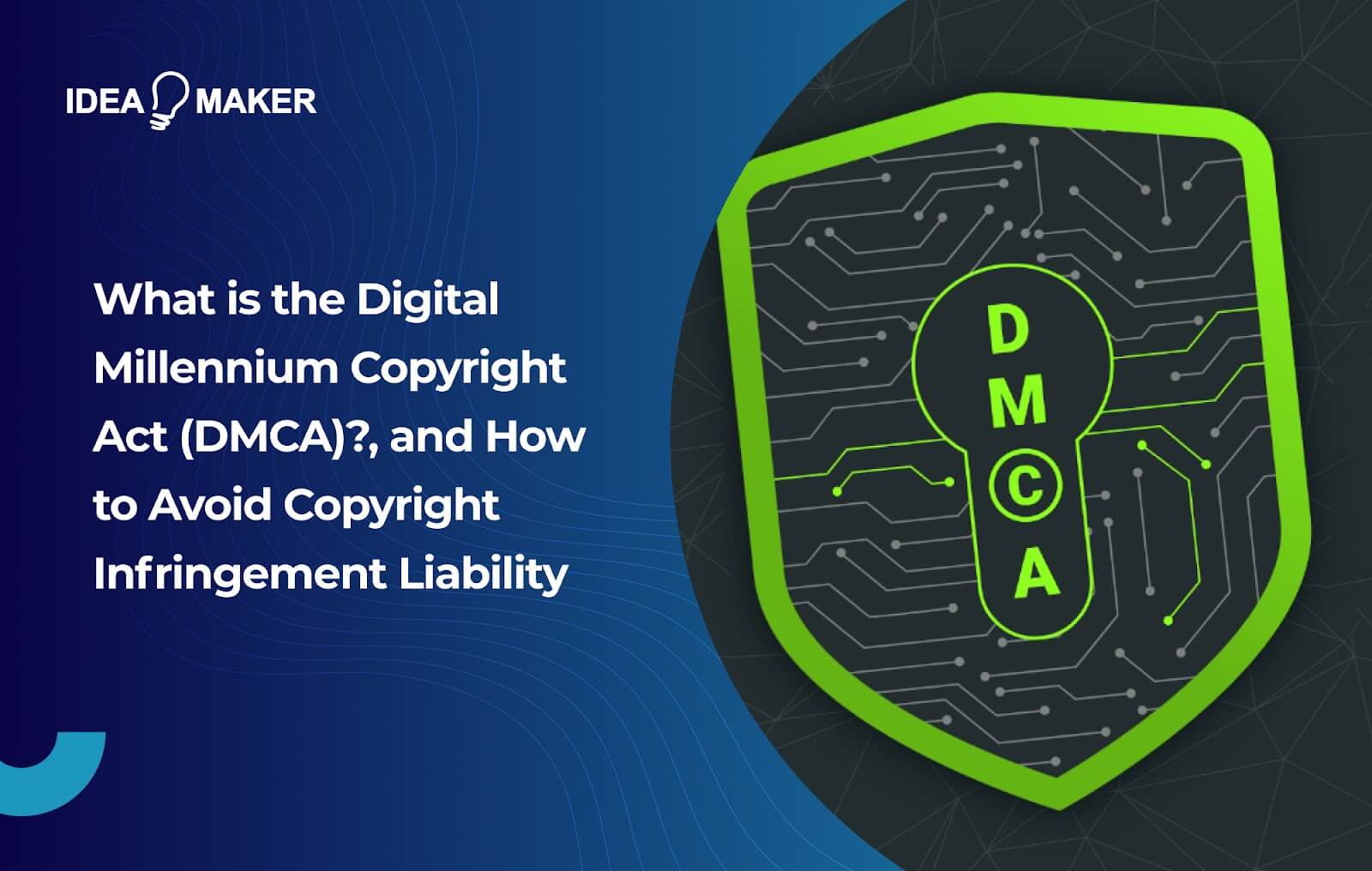When developing a website, you must follow many rules and regulations. If you fail to do so, you risk significant fines, civil, and even criminal court cases.
If you’re building a video-sharing site or webpage that delivers user-made content, you must abide by the Digital Millennium Copyright Act (DMCA). There are over 3000 copyright infringement cases a year in the US, many of which could have been avoided if DMCA regulations had been followed.
This article aims to help you understand the DMCA and how you can avoid copyright infringement liability. Keep reading to learn more.
Table of Contents
What is the DMCA?
The Digital Millennium Copyright Act is a law implemented in 1998 to protect intellectual property. It makes sharing, producing, publishing, and disseminating copyrighted material online a civil and, in some cases, criminal offense.
Building upon treaties outlined by the World Intellectual Property Organization, the DMCA sets out various guidelines that websites must follow. If DMCA protocols are not correctly observed, your business could be severely impacted. It is essential to understand the DMCA when developing a video and content sharing platform.
What is Considered Fair Use Under US Copyright Law?
Intellectual property laws are complex and full of nuances that are sometimes difficult to understand. One precedent subject to much controversy and scrutiny is the Fair Use of copyrighted material.
There are several exceptions when using copyrighted material is deemed acceptable under the terms of Fair Use. This includes, but is not limited to:
- Transformative purposes
- Critiquing content
- Parodying content
- Quoting works
For example, commenting, ‘When Bob Dylan sang, “How many roads must a man walk down before you call him a man?” He was denoting the heavy pressures afforded to man,’ is Fair Use. Performing Bob Dylan’s ‘Blowin’ In The Wind’ and claiming it as your own is not.
However, you must remember that Fair Use is a contentious issue, and the above list may not be grounds for an exception. You should always seek the copyright owner’s permission before using another person, or entity’s, content.
How To Protect Your Website
Protecting your website from infringing material is as simple as it is important. As long as you observe the following steps, you will have a strong level of protection against copyright infringement liability.
Register a DMCA Agent
The first step is to register a dedicated DMCA agent with the US Copyright Office; this could be yourself, an employee, or a third party. It costs $6 to register per agent and lasts three years. Any amendments, resubmissions, or renewals incur another $6 fee.
A DMCA Agent acts as a safe harbor provision for your website, preventing copyright infringement liability. Their job is to manage, receive and report infringement notifications from copyright holders. Once they have been notified and the user-generated content reviewed, online service providers must ensure the copyrighted material is removed immediately.
List Agent Details
After registering a dedicated DMCA agent, you should ensure their contact information is readily available on your website. Though this isn’t a necessity, it is good practice. Listing your DMCA Agent’s details allows anyone with a copyright complaint or question to get in touch and resolve any issues easily.
Clearly Outline the DMCA Takedown Procedure
Behind your DMCA Agent, there is a clear set of instructions complainants must follow, outlined by the US Copyright Office. If the procedure is correctly followed and submitted in writing, copyright holders may issue a takedown notice and have the infringed material removed.
The DMCA takedown procedure is comprised of six items:
- The copyright holder, or an authorized representative thereof, must provide a physical or electronic signature.
- The copyright holder must clearly identify the infringed material(s).
- The copyright holder must provide information that determines the location and identification of the infringing material on your website.
- The copyright holders must give contact information so further communication can take place, including their telephone number, address, and email if applicable.
- The copyright holder must provide a statement expressing that they faithfully believe their material has been unlawfully used.
- The copyright holder must supply a statement agreeing that the information provided is accurate and that any agent acting on their behalf is authorized.
Listing this procedure on your websites enables transparency between you, as a service provider, and copyright holders. It makes the claimant process smoother and thus lessens the risk of liability.
Add a Copyright Infringement Alert Mechanism
Your website should include a mechanism to alert the DMCA Agent beyond listing their contact details. For example, many websites link to an online form or email address that allows complainants to contact your designated agent swiftly.
A DMCA alert mechanism is one of the most simple technical protection measures to implement, requiring little technical expertise. If your website is built using WordPress, you can learn more about implementing additional functionality through Idea Maker’s WordPress Theme Development Guide.
Community Guidelines
If your website features user-generated content, it’s an excellent idea to clearly outline community guidelines users must follow when using your site. Though this is not a perfect solution, it forces users to agree that they will not knowingly use copyrighted material. This adds an extra layer of protection to your website.
Penalties for Failing to Comply with the DMCA
There are two types of DMCA infringement cases: civil and criminal. Both types have different penalties and criteria. If you are found to have previous knowledge of a copyright infringement and have not taken action or have failed to remove violating content, you could be left with fines of over $500,000.
Civil Cases
Civil cases are when a copyright holder sues a service provider for the use of their copyrighted content without express permission. Lawsuits are filed with the federal district court, which can issue injunctions to the service provider.
A civil DMCA case can result in penalties of up to $2500 per violation and up to $25,000 in statutory damages. The copyright holder can also claim any profits the service provider generated from the content and up to $75,000 in statutory damages for repeat offenders.
Criminal Cases
Copyright complaints are considered criminal when a service provider is shown to have wilfully used copyrighted content for commercial advantage. For example, if you are notified of a violation but willingly choose to keep the content live due to the income generated, this could result in a criminal case.
A criminal violation of DMCA can result in fines of up to $500,000 and five years jail time for first offenders. On the other hand, repeated offenders can expect penalties of up to $1 million and ten years imprisonment.
Protect Your Business
After reading this article, you should now understand what DMCA is and how to protect your business. This article covered:
- What is the DMCA?
- What is considered Fair Use?
- How to protect your website
- Penalties for failing to comply with the DMCA
Implementing the features discussed in this article will help reduce your liability for copyright infringement and lower the risk of penalties. However, they do not provide complete protection. You must always ask for copyright holder permission where possible.
DMCA Compliant Site from Idea Maker
If you’re worried about infringing copyright, you should consider building a website with Idea Maker. We have a team of dedicated developers and experts who understand how to construct robust DMCA mechanisms and policies for your website.
Contact us today by scheduling a free online consultation to get started on your DMCA-compliant website.





















